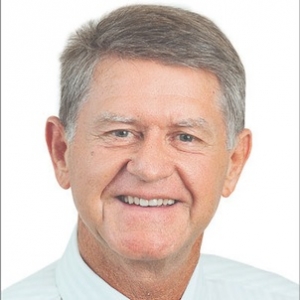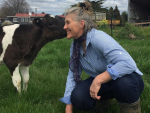WHETHER MOTIVATED by profitability or a drive for continuous improvement, growing staff productivity is an ongoing challenge facing all businesses.
It is especially relevant given the current pressures on dairy returns. With staff costs about 20% of operating expenses, productivity is an obvious place to look to achieve efficiencies.
Review and restructure requires judgement, communication and leadership. It always works better when there is full consultation with the team, fresh thinking by professionals and, most of all, transparency to protect and encourage a trust culture.
The starting point to maximise people’s effectiveness is to ensure they are clear on what is expected of their role. This depends on job descriptions that describe measurable outcomes against which performance can be assessed. Putting these together needn’t be a time-consuming process: there are plenty of templates available through industry publications like those available on DairyNZ and my website.
The next ingredient is building a high trust culture. This will be fostered by behaviour that demonstrates mutual commitment to loyalty and support. When the pressure is on there must be total belief in the people who are going to be asked to do more with less. In a high trust environment there is greater ability to confront barriers and challenge through courageous conversations.
The absence of trust leads to artificial harmony, defensiveness, resistance to change and restricted ability to deliver feedback that will challenge team members to new levels of performance. This is characterised by negative mindsets, reluctance to collaborate and avoidance of conversations that could otherwise deliver real returns to the team and business. Left unaddressed this type of culture becomes a constant source of stress and a catalyst for relationship breakdown.
Encouraging team dialogue about what a high trust environment looks like builds a foundation for interactions that empower the team to explore previously no-go areas. Topics that increase understanding of this should be a regular feature of agendas for staff meetings. Balancing them between a focus on functional, day to day issues (getting the job done) and developing or reinforcing culture and values (how the team works) enhances variety and relevance of content for team discussions.
In this environment team leaders are better able to assess how efficiencies could be captured and float their ideas for refinement and feedback from the team.
The productivity review process will be advanced by incorporation into the regular performance reviews that should be happening in the business. These must be simple, time efficient and focus on areas where performance gains will add value. They are not just a box ticking exercise, they involve planning and evaluation to talk about what matters.
To be effective, performance review needs to link to assessment against measurable outcomes described in job descriptions. These discussions can be enhanced by involving an independent facilitator or senior staff not directly involved in the relationship to reinforce key messages and ensure they are delivered with minimum risk to day to day working relationships.
They should end with a clear action plan for improvements that will benefit the business and grow prospects for the staff member. The focus should be to secure commitment to values and culture, engagement with best practice for farming roles and commitment to training (and consequent growth and career opportunities). They should include how efficiencies can be gained by focusing on time and cost efficiencies including temporary strategies that will support the business through this period of lower milk prices.
It’s important to recognise that high-performance teams comprise people who bring the right balance of character and competence to their role. Those who excel at the tasks of their job but lack character and commitment to team and business values can be deceptively destructive. Confronting this by challenging leaders and staff about both what they do and how they do it is fundamental to moving forward.
There is plenty of good reading to support full understanding of these topics. I’ve have found Stephen R Covey’s The Speed of Trust and Patrick Lencioni’s The 5 Dysfunctions of a Team thought-provoking and empowering.
Continuous engagement in developing people offers real energy to the business, promotes team dynamics that deliver a more positive and solution focused culture, reduce tensions and grow capabilities for a rewarding future for all involved.
• Kerry Ryan is a Tauranga agribusiness consultant. www.kerryryan.co.nz


















